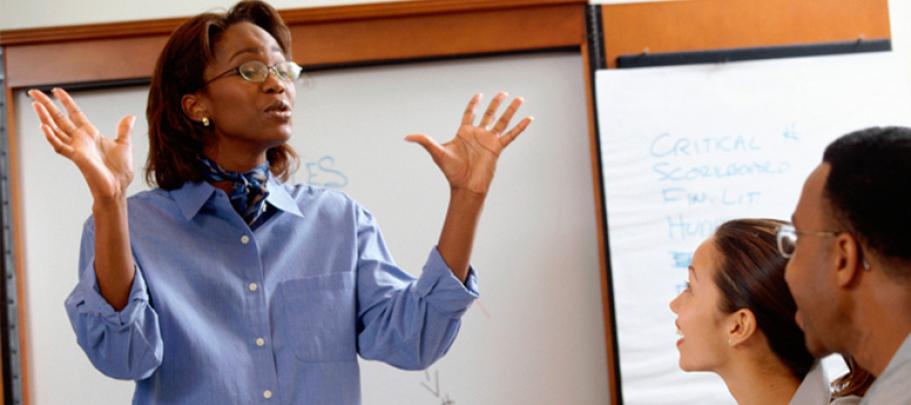
One of our clients asked me to suggest improvements to quarterly employee town halls. The sessions are recorded, so the other day I found myself binge-watching the last three meetings.
The good news is that I could fast forward through the slow parts.
The bad news? There were a lot of slow parts.
As with many town halls, leaders painstakingly narrated a lot of details about company performance, initiatives in progress and upcoming strategies. Leaders were working hard to present this dull content in a meaningful way, but even the most charismatic leader couldn’t make this stuff interesting.
And here’s the crux of the problem: Leaders have the mistaken impression that, at town halls and in other venues, their role is to share information.
Sorry, but that’s incorrect. There are lots of faster, better ways to disseminate information. And the true power of leader communication is not in reciting facts. Leaders should use their precious time to:
- Create focus. What matters most in the organization right now? Leaders should talk about the key priorities that will make the organization successful—and the threats that need to be addressed.
- Build community. What unites the organization? How can employees work together for a common goal? Leaders need to develop a sense of “we’re in this together.”
- Celebrate achievements. What have employees done right that deserves recognition? How does the organization build on these successes? Leaders should be COCs—Chief Organizational Cheerleaders—to help employees feel proud about what they’ve done.
- Provide a call to action. What do employees need to do right after this meeting? Leaders need to “get out the vote”—explain how employees can make a difference and motivate employees to take action.
You might notice that none of these require a data-laden PowerPoint slide. What is needed is a very different objective than the usual town hall—to leave the meeting with focus and energy.
Leaders: I’m sure you’ll agree that that’s a much higher purpose. Ready to change what and how you communicate?




